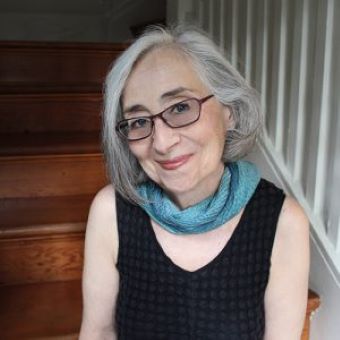Prayers to Open the Heart and Soul for the High Holy Days
Sept. 3, 2015
Editor’s note: As we approach the High Holy days, here are two selections, one for Rosh Hashanah and one for Yom Kippur, excerpted from Marcia Falk's The Days Between: Blessings, Poems and Directions of the Heart for the Jewish High Holiday Season," published by the HBI Series on Jewish Women, Brandeis University Press.
 The ritual commonly known as Tashlikh, literally, "You (God) will cast" — takes its name from Micah 7:19: V’tashlikh bim’tzulot yam kol-hatotam, "You will cast (hurl, cast away) all their sins into the depths of the sea." Performed on the afternoon of the first day of Rosh Hashanah (or on the second day, if the first day falls on the Sabbath), Tashlikh takes place near an ocean, river, or other natural body of water. After the recitation of the verse from Micah, crusts or crumbs of bread are tossed into the water to symbolically cast one's sins away.
The ritual commonly known as Tashlikh, literally, "You (God) will cast" — takes its name from Micah 7:19: V’tashlikh bim’tzulot yam kol-hatotam, "You will cast (hurl, cast away) all their sins into the depths of the sea." Performed on the afternoon of the first day of Rosh Hashanah (or on the second day, if the first day falls on the Sabbath), Tashlikh takes place near an ocean, river, or other natural body of water. After the recitation of the verse from Micah, crusts or crumbs of bread are tossed into the water to symbolically cast one's sins away.
The re-created ritual, "We Cast into the Depths of the Sea," begins with "Casting Away," a recitation that revisions and expands upon the theme of the biblical verse. The opening word in the Hebrew is nashlikh, "we will cast (away)." Instead of asking that God purge us of sin, we seek in this declaration to free ourselves from whatever impedes our moving into the new year with clarity, lightness, and hope.
Casting Away
We cast into the depths of the sea
our sins, and failures, and regrets.
Reflections of our imperfect selves
flow away.
What can we bear,
with what can we bear to part?
We upturn the darkness,
bring what is buried to light.
What hurts still lodge,
what wounds have yet to heal?
We empty our hands,
release the remnants of shame,
let go fear and despair
that have dug their home in us.
Open hands,
opening heart —
The year flows out,
the year flows in.
The traditional prayers of confession recited on Yom Kippur are lists, in abecedarian form, of sins that may have been committed in the past year by oneself or other members of the community. This re-creation replaces that catalogue with a call to self-accounting.
Confession
Stand at the roads, and consider.
Look into the paths of the past,
see which is the road of goodness.
Walk it, and find tranquility.
— Jeremiah 6:16
In the mirror of our eyes,
the other is reflected;
in the eyes of the other —
ourselves.
We look outward,
inward,
see how we have hurt
and harmed,
how hurt embeds even
in the smallest wounds.
We give ourselves over,
begin to make amends,
begin
to make ourselves whole.
Marcia Falk is the author of "The Days Between: Blessings, Poems and Directions of the Heart for the Jewish High Holiday Season."